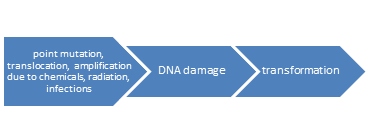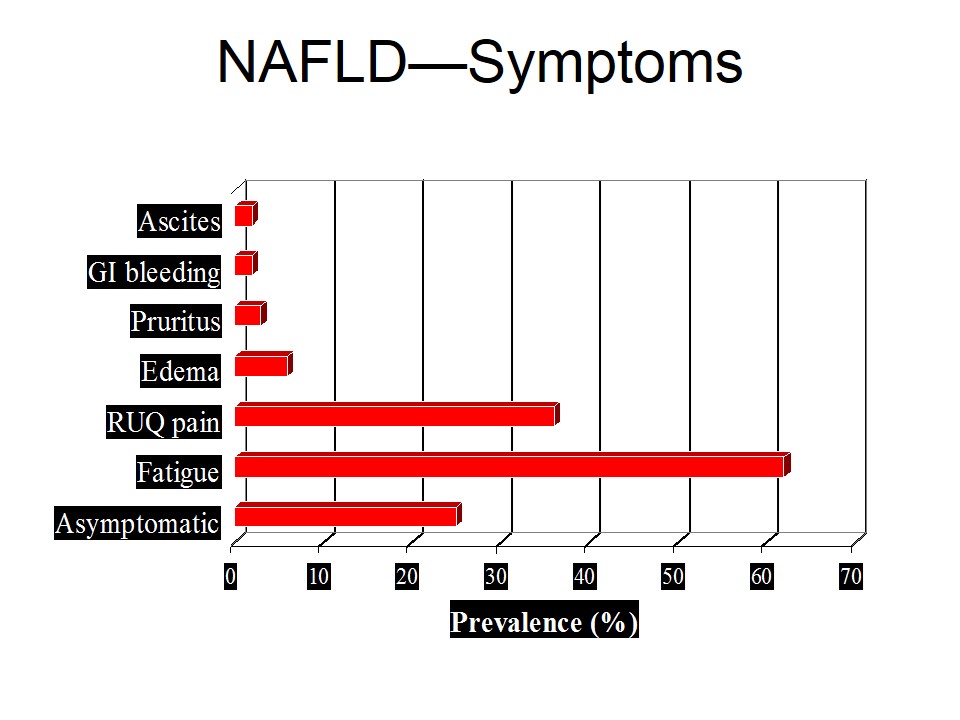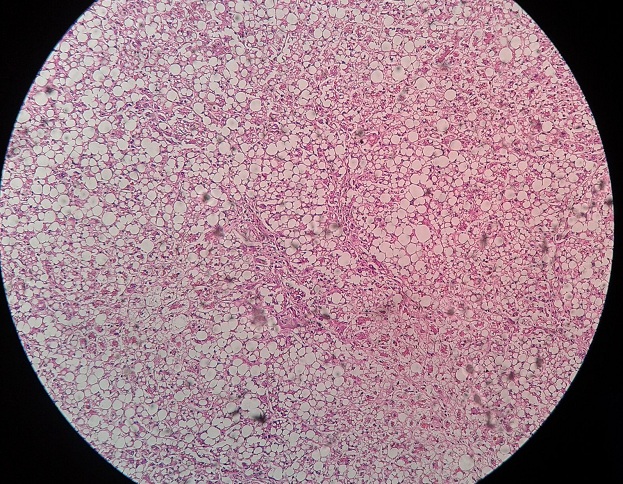Carcinogenesis is the pathogenesis of cancer. Cancer patients may have inherited mutations predisposing to cancer.
There are 3 categories of genetic mutations:
- Autosomal dominant inherited cancer syndromes –single mutant gene, point mutations
- Defective DNA repair syndromes –autosomal recessive pattern
- Familial cancers –seen in close relatives, early age of onset
Non- hereditary Predisposing Conditions
a. Chronic Inflammation
Chronic inflammation predisposes to cancer, because of:
- Production of cytokines leading to growth of transformed cells
- Chronic inflammation may increase pool of tissue stem cells
- Production of reactive oxygen species increasing genetic instability
b. Chronic gastritis by H. pylori
c. Environmental and geographic factors
- Chemical carcinogens
- Radiations
- Age
Molecular Basis of Cancer
Non-lethal genetic damage lies at the center of carcinogenesis.
This damage may be acquired:
- Chemical carcinogens
- Carcinogenic viruses and other microbes
- Radiations
- Inherited
- Combination –common
Regulatory genes –targets of genetic damage
Four classes of regulatory genes are present:
- Promotors –promote proliferation
- Inhibitors –tumor suppressor genes, p53
- Genes causing apoptosis
- DNA repair genes
Genetic alterations and oncogene activation
- Loss/damage to suppressor genes
- Duplication of promoter genes
- Loss/damage of apoptosis genes
- Loss/damage of DNA repair genes
Essential alterations for malignant transformation
- As a consequence of oncogene activation, tumors have capacity to proliferate without further stimuli
- Tumors are insensitive to growth inhibitory signals
- Resistance to apoptosis
- Tumors fail to repair DNA damage
- Tumor sustain blood supply by various factors
- Tumor metastases are cause of majority of cancer deaths
Tumor Clonality
- Genetic damage to single precursor cell
- Clonal expansion
- Tumor formation
- Clonality can be determined by assessment of:
- Specific translocations in all tumor cells
- Tumor markers
- Immunoglobulin receptors
Tumor progression
The various components of tumor progression are:
- Excessive growth
- Local invasion
- And distant metastasis
These result from:
- Accumulation of genetic lesions
- Defects in DNA repair
 howMed Know Yourself
howMed Know Yourself





